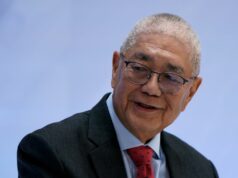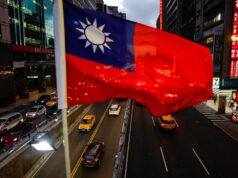China asserts anew sovereignty over Spratlys
By Vann Marlo M. Villegas, Reporter
CHINA maintained that it has sovereignty over the Spratlys Island following remarks this week by Presidential Spokesperson Salvador S. Panelo asserting Philippine sovereignty over Pag-Asa Island in the Kalayaan Group of Islands amid the reported presence of Chinese vessels in the area.
Despite, Malacañang maintained its stance as it invoked the Philippines’ right over the West Philippine Sea as provided under the 2016 Hague ruling.
Chinese Foreign Ministry Spokesperson Lu Kang said in a press conference in Beijing on Thursday that China’s claim over the territory in the West Philippine Sea has sufficient basis.
“The Nansha Islands are within China’s territory, for which we have sufficient historical and legal basis,” he said.
“For thousands of years, Chinese fishermen have been fishing in these waters in the South China Sea. Their rights should not be challenged,” he added.
Mr. Lu also emphasized that relevant disputes in connection with the South China Sea should be resolved through negotiations between China and other countries including the Philippines.
“(W)e are committed to upholding peace and stability in the South China Sea in concert with other regional countries,” he said.
He noted that the “personal efforts” of Chinese President Xi Jinping and President Rodrigo R. Duterte have brought China and the Philippines “to the right track of properly handling and resolving the relevant disputes through negotiation and consultation.”
Mr. Lu also said the situation the South China Sea is “generally stable” and “steady progress” has been made over consultations in the Code of Conduct among the region’s states.
“The China-Philippines relationship has experienced a turnaround, been consolidated and elevated to a comprehensive strategic cooperative one. This positive momentum is hard-won and shall be all the more cherished,” he said.
Mr. Lu said China hopes the Philippines can join them in managing the South China Sea dispute and in upholding peace in the territory, benefitting citizens of the two countries.
“We hope that the Philippine side will join us in strictly implementing the important consensus reached by the two leaders on properly resolving the South China Sea issue and safeguarding peace and stability in the South China Sea,” he said.
Mr. Panelo on Wednesday said the country “will always assert sovereignty when it is being impaired or assaulted.”
True to his words, Mr. Panelo said in a statement on Friday that “while we concur with the Chinese official’s statement that the dispute can be best threshed out through peaceful negotiation and consultation between the two countries just as it will strengthen the Philippines-China relationship towards a solid partnership beneficial to Filipino and Chinese communities, the arbitral ruling however has already been rendered and we remain steadfast in maintaining our claims with respect to our territory and exclusive economic zones pursuant not only to the said arbitral judgment based on accepted principles of public international law but consistent with the directives of our Constitution and the aspirations of the Filipino people.”
On this note, the Palace official also asserted that China should avoid performing acts over the disputed territory that threatens Filipino fishermen and may jeopardize bilateral negotiations between the two countries.
“As a matter of protocol, we expect our Philippine counterpart, the Department of Foreign Affairs, to issue an official statement on the matter.”



